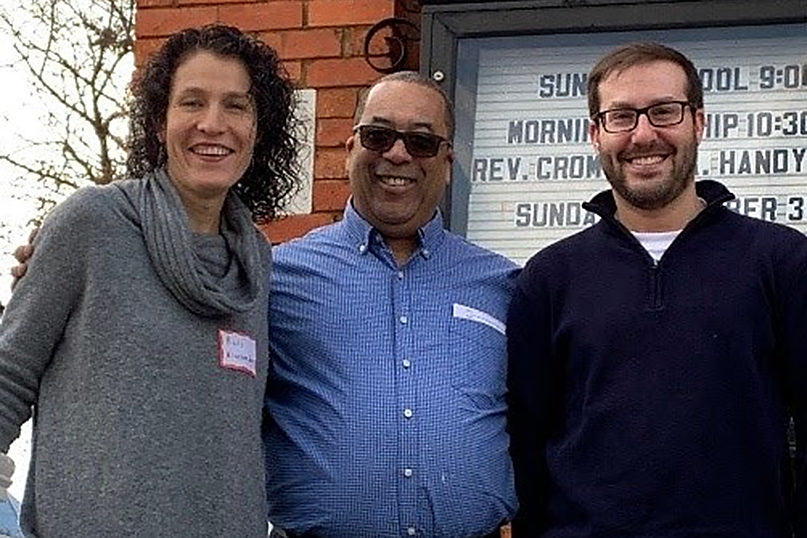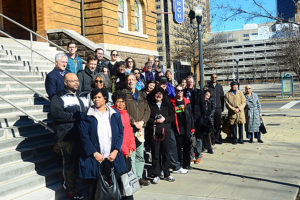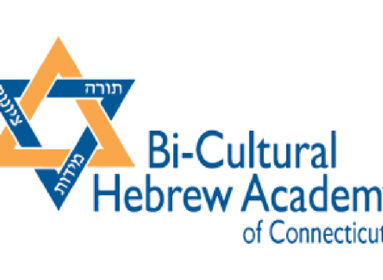
Jews and Christians unite for “Interfaith Freedom and Justice Ride 2019”
By Stacey Dresner
HARTFORD – Earlier this month a delegation of Jews and Christians from Greater Hartford retraced the footsteps of civil rights leaders in Montgomery, Birmingham, and Selma, Alabama on a trip called Interfaith Freedom and Justice Ride 2019.
From Jan. 3-6, participants visited historic sites – including Birmingham’s 16th Street Baptist Church, where four young girls were killed in a Ku Klux Klan bombing in 1963 – and walked across Selma, Alabama’s Edmund Pettus Bridge, where civil rights activists were beaten by Alabama State Troopers during a nonviolent march in 1965.
They also visited the eight-month-old National Memorial for Peace and Justice in Montgomery, which memorializes Black lynching victims.
The group came together to worship at services at both a Reform synagogue in Selma and a church in Montgomery, and participated in group discussions aimed at bringing the Jewish, Black and Christian communities closer together.
The ride was spearheaded by the Jewish Federation Association of Connecticut (JFACT); the Jewish Federation of Greater Hartford’s Jewish Community Relations Council (JCRC); the Connecticut Conference of the United Church of Christ; and Faith Congregational Church and Immanuel Congregational Church, both located in Hartford.
The 37 people on the trip included JCRC members and other Jewish and Christian lay leaders and professionals, clergy, and elected officials.
The idea for this trip began five years ago when David Brandwein, immediate past chair of the JCRC, was asked by the Jewish Council for Public Affairs (JCPA) to bring a representative of the Hartford African-American community to a three-day conference in Philadelphia dedicated to building Black-Jewish relationships. Brandwein invited Rev. Stephen W. Camp, senior pastor of Faith Congregational Church in the north end of Hartford.
Rev. Camp then invited Brandwein and men from the Jewish community to attend his church’s men’s club. Half a dozen Jews began attending Faith’s men’s club events “infrequently but regularly,” Brandwein said.
“One of the things we had in common was…everybody was 65 or older,” Brandwein explained. “Everybody had lived through the Civil Rights movement and everybody was saying that their kids didn’t know much about the Civil Rights movement, whether they were Black or Jewish. From that and other things, Rev. Camp decided to look into whether we could do a trip.”
Since then, Camp has taken two interfaith teenage groups on civil rights journeys to the South, after which, Brandwein says, “He said, ‘We need to do it with an adult group.’”
Six months ago, Camp, Brandwein, Michael Bloom, executive director of JFACT, and Rev. Kari Nicewander, senior minister of Immanuel Congregational Church in Hartford, began planning the January civil rights trip.
The idea was to have three units of 12 people each from the Jewish community and the two churches. The Jewish group included JCRC board members like Brandwein, current JCRC chair Bob Blitzer, and other JCRC committee members, some Federation staff, Bloom from JFACT, and David McQuire, the Connecticut director of the ACLU. The two church groups included both Camp and Nicewander and a number of their congregants. (The Jewish clergy member was to be Rabbi Randall Konigsburg of Beth Sholom B’nai Israel in Manchester, who had to drop out of the trip due to the death of a congregant.) Two legislators also participated – State Sen. Matt Lesser and State Sen. George S. Logan.
“What Rev. Camp wanted to do was raise awareness of the history of slavery and the Civil Rights movement,” explained David Brandwein, adding that while visiting The Legacy Museum: From Enslavement to Mass Incarceration in Montgomery, the group saw that “slavery did not end with the Civil War and the Emancipation Proclamation; slavery continues to evolve. It just has different forms.”
Bob Blitzer said that while one goal was bringing the different communities together, the main goals was “walking in black men’s steps and seeing just how devastating [racist] behavior was, especially since it is ongoing.”
Blitzer said he was most impacted by the National Memorial for Peace and Justice and the nearby Legacy Museum.
“The Lynching Memorial was probably one of the most extraordinary experiences. It rivaled Yad Vashem, in the sense that the description as you walked to the memorial was really moving. And the museum across the street was so well done. It is an extraordinarily sobering history of how this country navigated corrosive effects of slavery. It is hard to believe that people could go to a lynching with their children.”
The memorial, which is open to the outdoors, consists of hanging metal memorials representing more than 4,000 lynching victims and the counties in which they were murdered.
“It was very stark and very troubling, and I can only imagine even more so for the African Americans that were on the trip,” Brandwein added.
Brandwein said that while it wasn’t a focus of the trip, the state of the relationship between Blacks and Jews was a current that ran through some conversations.

Participants in the Interfaith Freedom and Justice Ride 2019 outside of Birmingham’s 16th Street Baptist Church, where four young girls were killed in a Ku Klux Klan bombing in 1963.
“The trip really focused on the history of slavery and then the Civil Rights movement. We did talk about, and what I want to explore more, is the incredible relationship that the Jewish community had with the Civil Rights movement back in the ‘60s,” Brandwein said, citing Rabbi Stanley Kessler, emeritus rabbi at Beth El Temple in West Hartford, who marched in May 1963 from Birmingham to Selma in 1965 to demonstrate with the Freedom Riders.
“I made sure that people on the trip were aware that he was one of 20 rabbis that went down [to march in support of Civil Rights],” Brandwein said. “The relationship back in the ‘60s was very good. There was a very strong, positive relationship between the African American community and the Jewish community going way back… That relationship has faded over the years and one of the things we are trying to do is make sure people understand it was a strong relationship that needs to continue and remain strong.
“We share so many things in common – you know white supremacy today is an issue. One of the main issues of the African American community is criminal justice reform, which is also one of the top priories of the social action wing of the Jewish community.
“The Jewish community is very concerned about Israel, and one of the rifts between the African American community and Jews is about Israel, because a number of young African Americans are very aligned with the Palestinian cause.”
According to Brandwein, the group did come together and bond.
They attended a Shabbat service at Temple Emanu-El in Selma, followed by a Shabbat dinner and talk by a representative of the Southern Poverty Law Center.
Both ministers on the trip gave sermons touching on both racism and antisemitism on Sunday at a church in Montgomery, followed by a lunch with church members.
“We spent a lot of good quality time on the bus and at meals talking,” Brandwein said.
The organizers hope these conversations continue.
“Judging by the comments I have received, those who participated in this ride for freedom were moved to embrace the work for justice that is ahead,” said Camp.
“I hope the conversations that began on this trip continue; they are necessary and important conversations to have,” said Michael Bloom. “In addition, I hope this trip is a call to action on racial justice issues. Slavery didn’t end; it just evolved into restricting voting rights and mass incarceration.”
Related Events:
• David Brandwein will discuss the Interfaith Freedom and Justice Ride 2019, along with other speakers, at the 9th Annual MLK celebration at Faith Congregational Church, 2030 Main St., Hartford, on Monday, Jan. 21, 3:30 p.m.
• Rev. Stephen Camp will speak at Congregation B’nai Tikvoh-Sholom, 180 Still Rd., Bloomfield, on Saturday, Jan. 19, 11:30 a.m.
• Congregation Beth Israel, 701 Farmington Rd., West Hartford., will hold Sunday Soup Supper for the Soul Honoring MLK on Sunday, Jan. 20 with supper at 5:30 p.m. and presentations at 6:30 p.m.
CAP: On the steps of the Dexter Avenue King Memorial Baptist Church in Montgomery, Alabama. (l to r) Reverend Kari Nicewander of Hartford’s Immanuel Congregational Church, UCC; Reverend Stephen W. Camp of Hartford’s Faith Congregational Church, UCC; and Michael Bloom, executive director, JFACT.








 Southern New England Jewish Ledger
Southern New England Jewish Ledger














